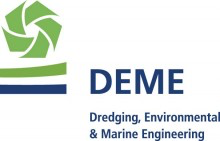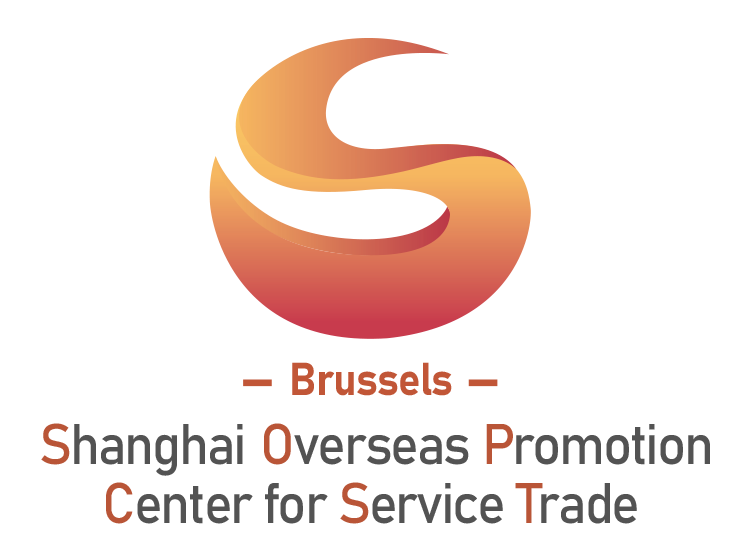10th round of China-EU high level strategic dialogue held
Jun-16-2020 By : fcccadmin
EU High Representative for Foreign Affairs and Security Policy Josep Borrell
The 10th round of China-EU high level strategic dialogue was held to pave the way for the rescheduling of the China-EU Summit and further negotiations on the investment treaty, setting the tone for pragmatic cooperation. Chinese State Councilor and Foreign Minister Wang Yi spoke with EU High Representative for Foreign Affairs and Security Policy Josep Borrell by video conference, with one item top on the agenda – trade and investment cooperation, the Global Times reports. Wang pointed out that China and EU are not competitors but long-term strategic partners, and the two sides should stand on the progressive side of history, together with the majority of the international community to uphold multilateralism. Hong Kong affairs, the Iranian nuclear issue, the situation on the Korean Peninsula, and Middle East issues were also discussed. Sun Keqin, Research Fellow at the China Institutes of Contemporary International Relations, said that unlike pessimistic reports from European media that the summit would be cancelled, he expects the summit to be rescheduled not too much later than the original date of September 13, unless the pandemic remains out of control by then. “At a time when disputes are on the rise, preserving economic cooperation is particularly crucial to the stability of bilateral relations,” said Bai Ming, Research Fellow at the Chinese Academy of International Trade and Economic Cooperation.
The time framework to complete a sweeping bilateral investment treaty by the end of the year remained unchanged for the Chinese side after a 29th round of negotiations in late May. But on the EU side, officials were reportedly considering tightening scrutiny of Chinese investment, particularly from Chinese state-owned firms. “In this regard, some EU countries are heavily influenced by the U.S. Such strict rules would pose a relatively large hurdle for Chinese investments,” Bai said, noting that the EU should not backtrack on previous consensus if it wants to push forward the deal. China and the EU are standing at a juncture when the latter was alienating from the U.S., trying not to fully join the U.S.-led anti-China circle, but unlikely to stand with China either, given areas of conflict, analysts said, as reported by the Global Times.
Josep Borrell added in a press release that “during more than three hours, we discussed a wide range of topics, reflecting the broad relations that we have. I highlighted the importance of reaffirming all relevant commitments from the 2019 Summit, which have not yet been adequately implemented, notably on the issue of market access, improving the level playing field, and reciprocity, where, on the European Union’s side, there are important concerns. We want our cooperation Agenda 2025 to be mutually satisfactory and we will engage in talks in order to do so.” Borrell added: “We agree on the need to continue working together on global challenges. Some of them will be even more important in the post-Covid-19 world. In particular, we need to hold on to our commitment to fight climate change and reach the objectives of the 2030 Agenda and the Paris Agreement. We will have to “build back better” – all of us. We all need to seize this opportunity to transform our economies and societies in a green and sustainable way.” During the Q&A session, Borrell said that the Summit will take place by the end the month, with the focus on the Agenda 2025, which sets out the concrete issues. He added that Agenda 2025 is today the most important deliverable on the table and that the investment agreement would not be ready for the Summit.
On the concept of China being a “systemic rival”, High Representative Borrell said that “sometimes, there are differences on interests and on values. That is a fact of life. It is also a fact of life that we have to cooperate, because you cannot imagine how we can solve the climate challenge without strong cooperation with China. You cannot build a multilateral world without China participating in it effectively, not in a “Chinese way”, but in a way that can be accepted by everybody. I think these kind of explanations are good, because I can tell you that we have talked a lot about what it means to be a “systemic rival”, according to the EU press release.
Chinese Foreign Minister Wang Yi said that both sides should take the 45th anniversary of the establishment of diplomatic relations as a new starting point for developing closer ties.
Volkswagen to raise stake in JV with JAC Motors
Jun-02-2020 By : fcccadmin
Volkswagen is planning to increase its stake in its electric car joint venture with JAC Motors from 50% to 75%, thereby becoming the second foreign carmaker to have a controlling stake in a Chinese car manufacturing JV after BMW. The increase in its equity stake is part of a €1 billion agreement to acquire a 50% stake in Anhui Jianghuai Automobile Group Holdings, the parent company of JAC Motors. The deal with JAC Motors is to be closed by the end of the year. In a separate deal, also signed last week, Volkswagen spent €1.1 billion to acquire a 26% stake in Gotion High-Tech Co, becoming the largest shareholder in China’s No 3 battery maker. The two deals are the largest foreign investment in China’s new energy vehicle (NEV) market.
Volkswagen CEO Herbert Diess commented: “The electric car segment is growing rapidly and offers a great deal of potential for JAC Volkswagen.” JAC Volkswagen, which was established in 2017, is dedicated to producing and selling electric vehicles. Volkswagen said it will introduce five new models by 2025. Volkswagen will also introduce models under its mainstream brands into the joint venture, which will have an annual capacity of 350,000 to 400,000 units by 2029. Volkswagen plans to produce around 30 new energy vehicle models in China by 2025 and sell 1.5 million units a year, with most of them pure electric ones. Besides JAC, it has joint ventures with SAIC Motor Corp and FAW Group, and both have built plants for electric vehicles as well. China is Volkswagen’s largest market, accounting for around 40% of its global sales.
China decided in 2018 to phase out the equity cap in the automotive industry. In the same year, BMW became the first international carmaker to acquire a majority stake in its car-making joint venture. As the world’s largest car market, China is home to more than 260 million vehicles now, including 4 million new energy cars. There is still vast potential for further growth, as the number of vehicles per 1,000 people hovers around 185, while the figure in the U.S. is around 800. China is expected to overtake the U.S. in terms of the total number of vehicles by the end of this year. Yale Zhang, Managing Director of Shanghai-based consulting firm Automotive Foresight, said Volkswagen’s two deals will prove to be a good bet when electric cars are more popular two or three years from now. They will prove useful when Volkswagen has to face competition from Tesla. “They show Volkswagen’s firm commitment to electrification, at least in China. The demand is here, so there comes investment,” said Zhang, as reported by the China Daily.
The Ministry of Industry and Information Technology (MIIT) has also come up with measures to support the NEV industry during the Covid-19 pandemic by extending tax exemption and subsidies until 2022. Electric cars like the Tesla Model 3 are also sold at a lower price in China. The Ministry will allow more OEM companies to enter the market and encourage switching from fossil fuel vehicles to NEVs in public services such as law enforcement, logistics and garbage collection.
Countries planning charter flights to take executives back to China
May-19-2020 By : fcccadmin
Companies from Germany, France and Switzerland plan to charter planes to bring their executives back to China amid the Covid-19 pandemic, and Chinese authorities are likely to open express channels to facilitate their comeback and revitalize economic activity, sources told the Global Times. The German Chamber of Commerce in China is organizing a flight with Lufthansa to assist German executives to fly back to China. The flight is planned to leave from Frankfurt and land in Shanghai on May 25. Other European countries such as Switzerland and France may also charter flights to get corporate executives back to China, a person familiar with the matter told the Global Times. “We are in constant contact with our members as well as with the Swiss and Chinese authorities. There is an urgent need for travel and we do our best to find solutions that take into account this need and take care of everyone’s safety,” Daniela Reinau, Deputy General Manager of the Swiss-Chinese Chamber of Commerce in Beijing, told the Global Times. The returning executives would need special visas to enter China. In view of the rapid spread of Covid-19 across the world, China on March 28 temporarily suspended entry by foreign nationals, except for special and humanitarian reasons, but China is preparing “express access” for key business representatives and technicians, Chinese State Councilor and Foreign Minister Wang Yi said.
Shanghai, which has the largest number of headquarters of foreign companies in the Chinese mainland, is striving to revive economic activity by helping foreign managers return. The process won’t be easy, industry insiders said. “For instance, we must first apply to local district authorities in Shanghai where the Chinese branch is located, and show that the foreign executives are crucially needed for performing economic, trade, scientific or technological activities,” an employee of a Chinese branch of a German company based in Shanghai told the Global Times. “The foreign national can get an invitation after all the documents are processed and approved by local authorities, and the process may take a week. Then he may apply for a new visa at a Chinese embassy or consulate,” the person said, adding that “the process for obtaining a visa will also be affected by the pandemic situation in the foreign national’s home country”.
Passengers must take Covid-19 tests and offer proof of negative test results, valid within 48 hours before departure from Germany. They will also need to go through a 48-hour quarantine after arrival in Shanghai, during which mandatory Covid-19 and antibody tests will be performed for each passenger, the employee said.
China requires international travelers to the country to undergo a 14-day quarantine, which was mandatory, said Yang Zhanqiu, Deputy Director of the Pathogen Biology Department at Wuhan University. But since China has largely contained the virus, it is possible that the quarantine period could be shortened in some circumstances, like those of German managers returning to work in China. Edmund Yang, a Pricewaterhouse Coopers (PwC) partner in Beijing, told the Global Times that some of the firm’s clients want to get their staff back to China as early as possible.
As of April 28, 76.6% of foreign companies in China had resumed more than 70% of their production capacity, according a survey of 8,200 key foreign-funded firms in the Chinese market by the Ministry of Commerce (MOFCOM). The number of newly established foreign-funded firms in China reached 9,616 in the first quarter, with foreign direct investment up 6.5% year-on-year to CNY242.28 billion, reports the Global Times.
China’s Foreign Ministry initially advised diplomats not to return to China before May 15, but has now extended this time frame to June 1. “China may relax border controls gradually in early June,” Wang Hongwei, Professor at Renmin University’s School of Public Administration and Policy in Beijing, told the Global Times.
China faces fight to retain foreign manufacturers
Apr-28-2020 By : fcccadmin
Three of the world’s four largest economies, the United States, Japan and the European Union, are drawing up separate plans to lure their companies out of China after the supply shock caused by China’s coronavirus shutdown. European Union Trade Commissioner Phil Hogan said the bloc would seek to “reduce our trade dependencies” after the pandemic, while Japan unveiled a USD2.2 billion fund to lure Japanese manufacturers back to the country or even to Southeast Asia – as long as they leave China – in response to supply chain disruptions. This followed the Director of the United States’ National Economic Council, Larry Kudlow, saying that Washington should pay the moving costs of American firms bringing manufacturing back from China. “I would say, 100% immediate expensing across the board for plant, equipment, intellectual property, structures, renovations,” Kudlow told Fox News, adding to his comments in January that the coronavirus outbreak would be a boon for American employment. However, the U.S. has no formal corporate repatriation program.
Firms from the U.S., Japan and Europe have been moving manufacturing away from China for some time due to rising costs and the impact of the U.S.-China trade war, but the pressure is now on to accelerate this, with the coronavirus pandemic highlighting how reliant the world is on goods made in China, particularly vital medical products.
Michael Alkire, President of health care resource provider Premier, has already identified 22 items of protective clothing and 30 drugs that are likely “so critical that they need to be produced” in the U.S. Many are currently made in China, which dominates the world’s personal protective equipment (PPE) and pharmaceutical markets. “For an N95 face mask, the cost to manufacture it overseas before the pandemic was about USD0.30 vs USD0.34-0.36 cents domestically,” Alkire said. “We’ve dodged a bullet, what we’ve seen in New York could have been widespread, there will be some serious shifting of supply chains after this.” Scott Paul, President of the Alliance for American Manufacturing, said that the idea of reshoring and decoupling is “gaining currency beyond the Navarros”, referring to hawkish White House Trade Adviser Peter Navarro. “How much of that lands back in the United States is an open question. But I think it’s much more certain that it will continue to flow out of China into other places,” Paul said.
For China, this presents a problem. As relations with Japan had been improving, Tokyo’s repatriation package “touched o! a heated debate in the Chinese political world”, according to the Nikkei Asia Review. Li Xunlei, Chief Economist at Zhongtai Securities and Adviser to the Chinese government, said while the rhetoric did not provide an immediate threat to China, it could be a serious long term challenge. About 70% of protective masks used in the U.S. are made in China, as well as a significant portion of its medicines. Reducing that dependence feeds into wider concerns over China’s growing economic, diplomatic and military might. Several law proposals have already been introduced at the U.S. Congress. One filed by Florida Republican Senator Marco Rubio would require the U.S. to reduce its supply chain dependence on China, and has attracted support from three Democratic Senators as the issue gathered bipartisan support. “It is unfortunate that it took a global pandemic to make clear the ramifications of offshoring our industrial base to countries like China,” Rubio said.
According to American analytics and advisory company Gallup, U.S. public opinion of China fell to a 20-year low with just 33% of Americans holding a favorable view. These results were echoed in a survey by the Pew Research Center. According to the 2019 Reshoring Index released earlier this month by American consultancy firm Kearney, the pandemic is forcing companies to rethink their supply chains, accentuating trends already under way, the South China Morning Post reports.
China’s inbound foreign investment rose 5.8% last year
Jan-28-2020 By : fcccadmin
China’s inbound foreign direct investment expanded 5.8% in 2019, the Ministry of Commerce (MOFCOM) said. FDI totaled CNY941.5 billion last year, with more than 40,000 foreign-funded enterprises being established. In value terms, China remained the second-largest target for FDI in the world. Foreign investment in high-tech industries surged 25.6% year-on-year to CNY266 billion, accounting for 28.3% of total FDI. Pilot free trade zones saw FDI inflow reach CNY143.6 billion, accounting for 15% of total FDI. Foreign investors may increase their input in the financial and healthcare sectors this year as China continues to open its market further, a recent report by the law firm Freshfields Bruckhaus Deringer said. “With the implementation of China’s new foreign investment law, we may see more cross-border transactions in sectors like insurance and healthcare,” said Shen Yuxin, Partner at the firm.
China will remain a hot spot for global investment in the long term despite souring global economic conditions, Qian Keming, Vice Minister of Commerce, said, adding that China will accelerate negotiations for multilateral and bilateral economic deals with its trade partners in Asia, Europe and Latin America to encourage more companies to invest in China. Qian said China’s opening-up efforts have received a positive response throughout the world, and will help it to gain more foreign investment in areas including digital technology, modern services, and high-end and smart manufacturing. The number of foreign-funded projects with an investment of at least USD100 million reached 834, up 15.8% on a year-on-year basis.
Last year China saw year-on-year FDI growth of 51.1% from Singapore, 43.1% from the Netherlands and 21.7% from South Korea. Some of the world’s biggest corporate players, such as Samsung, BASF, British Petroleum, Caterpillar, Saudi Aramco, Panasonic, Cargill, ABB, Tesla and Siemens, have renewed their commitment to China by expanding their operations countrywide.
From 1978 to 2018, China has attracted over USD2 trillion of foreign direct investment in non-financial sectors. Around 490 out of the world’s top 500 companies have business operations in China, Vice Premier Han Zheng revealed.
China’s non-financial outbound direct investment (ODI) dropped 6% year-on-year to CNY807.95 billion in 2019, according to MOFCOM. Chinese companies invested CNY105.96 billion in economies involved in the Belt and Road Initiative (BRI), accounting for 13.1% of the total. The structure of outbound investment continued to improve, with investment mainly going into such sectors such as leasing and business services, manufacturing, as well as wholesale and retail sales, the China Daily reports.
- KURT VANDEPUTTE (UMICORE) APPOINTED CHAIRMAN OF THE BOARD OF THE FLANDERS-CHINA CHAMBER OF COMMERCE (FCCC)
- Webinar: “Knowing Your Chinese Partner” – May 26, 2021, 10 am – 12 am
- EMA starts rolling review of CoronaVac, WHO approves Sinopharm vaccine for emergency use
- The Global Times warns not to politicize the Comprehensive Agreement on Investment (CAI)
- Hainan to become biggest duty-free market in the world



































